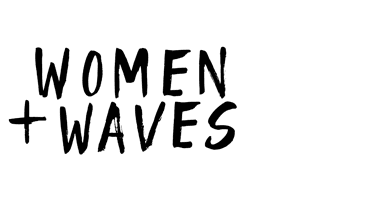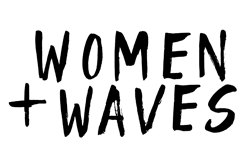
12 Feb 5 Simple Tips To Buying Your First Surfboard

Photo: Manly Surfboards
Here are 5 tips to go by when buying your first surfboard.
Whether you’ve caught the surfing bug or have a brewing Steph Gilmore in the family, buying your first surfboard is a big deal. You’ll remember this board for the rest of your life.
There are so many mistakes made when buying a surfboard. To ensure you don’t make the same errors (as most of us have) here are some pointers to go by:
-
Know what level of surfer you are.
Be honest with yourself; are you surfing white water? Are you surfing green waves yet? Are you standing most of the time? The biggest mistake that a beginner surfer makes is buying a board which is too advanced for them. You’ll have 10 x more fun on a board suited to your level.

2. New Vs Used
It’s always nice to buy something new but it comes with the cost of worrying about dinging it, which unfortunately is bound to happen at some point. If you look after it you can always sell it on down the line. You’d also benefit from talking to the professionals at your local surf shop about which board to go for. They can go through all the materials, what’s durable, what isn’t, fins and leashes etc. It’s a whole new technical world out there so it’s a good idea to go chat to someone in person about it.
Second hand boards can be a minefield. They can be fixed up badly and might not last as long as you’d hoped. It’s not unheard of to be sold a dodgy board online too. So unless you’ve done your research and know what to go for it might be best to stay clear for now. A second hand board can be great especially when you are looking to progress, they’re normally cheaper and you won’t need to worry about it getting banged around a bit.

Image from: louandgrey.tumblr.com
3. Deciding between a hardboard and a soft board.
There are lots of pros and cons to buying a hardboard (fibreglass) or a soft board aka ‘Foamie’ or ‘Swelly’.
Lets start with hardboards; yes, they look cool, responsive to movement,easier to duck dive and suit more of an intermediate/advance surfer. They can be super hard to get on with , especially if you are new to surfing. If you get one that’s too small, they tend to be less buoyant which makes surfing tricky when you’re just starting out. (we’ll get into this a bit more later). They can also be more fragile and can ding more easily and trust us there’s nothing worse than dinging your brand new board.
If you’re starting out or want to improve it’s safer for beginners/intermediates to start with a soft board. They don’t even look ‘kooky’ anymore, they come in all styles, patterns and colours. They are fairly solid, durable and you don’t have to worry about them. They catch waves easily which is the key point when learning and improving to surf (also means less paddle power needed), if you’re catching all the waves you’ll be having the most fun and more likely to improve faster. Soft boards are also super buoyant which means you can practice all sorts on them, popping up, headstands, even chuck your child or dog on the front.

Photo from Women + Waves Surf Club by Debs Alexandra
4.What size surfboard to go for.
This is a one of the most important parts to buying a surfboard. The size of the board can depend on your height,weight and level. The biggest mistake people make when buying a board is purchasing one far too small for you. Don’t buy it for the wrong reasons; it fits in your car, it won’t take up as much room and it fits under your arm. It could really ruin your surfing experience by being stuck on a short board you can’t pop up on.
Things to bear in mind:
-
Bigger is better when learning to surf.
-
Minimal’s are always a good place to start if you’re looking to get stuck in and progress. Anything around 7ft – 8ft is a good rough idea, but this can vary depending on your weight and height.
-
A longer board makes it easier for paddling and helps catch smaller waves.
-
As a beginner you probably won’t be surfing Mavericks, so a bigger board is much more fun in small fun waves.
-
A thicker board means it’s more buoyant and the wider you go generally means it gives you more stability.

5. Avoid buying online.
Go and speak to your local surf shop. They might offer a ‘try before you buy’ option and will be able to offer you so much more advice than these 5 simple tips. The majority of these local surf shops live and breath surfing and only want to make sure you get the surf stoke too. They can help with advice on fins, leashes, board dimensions, where to go surfing that day etc. The local shops will make sure you’re on the right board and maybe event chuck in a block of wax too.

Photo: Women + Waves Surf Coaching Weekends



Sorry, the comment form is closed at this time.